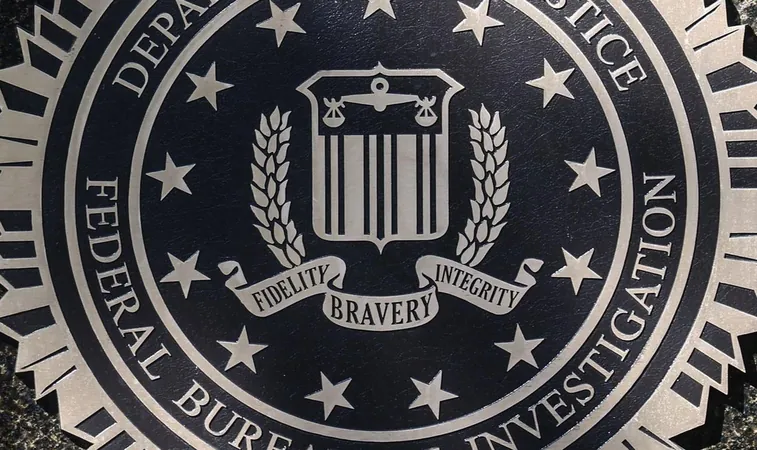
FBI Issues Urgent Warning for Gmail, Outlook, and Apple Mail Users—3 Crucial Tips to Stay Safe from Scammers!
2024-12-19
Author: Wai
As the holiday season approaches, an alarming rise in email scams has prompted the FBI to sound the alarm for users of popular email services like Gmail, Outlook, and Apple Mail. With scammers ramping up their activities, the only deceptive figure you want to encounter this time of year should be the Naughty Elf—not a cybercriminal in your inbox!
According to the FBI, these nefarious actors are luring unsuspecting individuals with seemingly irresistible deals through phishing emails. They may promise high-end products at bargain prices or entice potential victims with promising gift cards, only to deliver items that are completely different—or nothing at all.
To help you safeguard your personal information and digital assets, the FBI recommends checking three vital components with every unsolicited email that lands in your inbox:
1. Verify the Sender's Email Address:
Scammers often use email addresses that closely mimic legitimate companies. Look closely for minor discrepancies that could reveal a fraudster's identity.
2. Examine Links Before Clicking:
Always hover over links to see the real URL before engaging. If it looks suspicious, do not click it!
3. Inspect Language:
Pay attention to spelling and grammar; many phishing attempts contain obvious mistakes that can give away their fraudulent nature.
As online threats continue to evolve, attackers are increasingly exploiting advanced technologies like artificial intelligence to create realistic emails and websites. This makes it crucial for users to remain vigilant, especially during a time of year when scams are notoriously prevalent.
The FBI's guidelines for email safety remain straightforward:
- Legitimate companies will never contact you for sensitive information like your username or password via email or text.
If in doubt, call the company directly using the number you find on their official website.
- Be cautious with downloads:
Never open attachments from unknown sources, and even attachments that have been forwarded to you by acquaintances should be approached with care.
- Enable two-factor authentication on every possible account,
as this simple step can add an important layer of security to your digital life.
- Think before you share:
Be mindful of the personal details you disclose online or on social media, as this information can be leveraged to crack your passwords or answer security questions.
In an alarming revelation, Google's Gmail team noted a significant uptick in email traffic since mid-November, further complicating efforts to safeguard users from phishing attempts. While they block over 99.9% of spam, phishing, and malware, users are advised to be proactive with their email security consciousness.
They emphasize practical tips:
- Take your time.
Many scams thrive on creating a false sense of urgency to pressure you into making hasty decisions. Don't fall for it!
- Double-check facts.
Always validate the claims made in an email and ensure the sender's address is legitimate.
- Don't rush to send sensitive information.
Any reputable entity will never demand immediate payment or personal details.
If you encounter something suspicious, report it as spam. Not only will this cleanse your inbox, but your action could help protect countless others from these sophisticated scams.
Ultimately, the FBI succinctly reminds users: "If it looks too good to be true, it probably is." Stay safe and vigilant this holiday season—your digital security is in your hands!


 Brasil (PT)
Brasil (PT)
 Canada (EN)
Canada (EN)
 Chile (ES)
Chile (ES)
 España (ES)
España (ES)
 France (FR)
France (FR)
 Hong Kong (EN)
Hong Kong (EN)
 Italia (IT)
Italia (IT)
 日本 (JA)
日本 (JA)
 Magyarország (HU)
Magyarország (HU)
 Norge (NO)
Norge (NO)
 Polska (PL)
Polska (PL)
 Schweiz (DE)
Schweiz (DE)
 Singapore (EN)
Singapore (EN)
 Sverige (SV)
Sverige (SV)
 Suomi (FI)
Suomi (FI)
 Türkiye (TR)
Türkiye (TR)